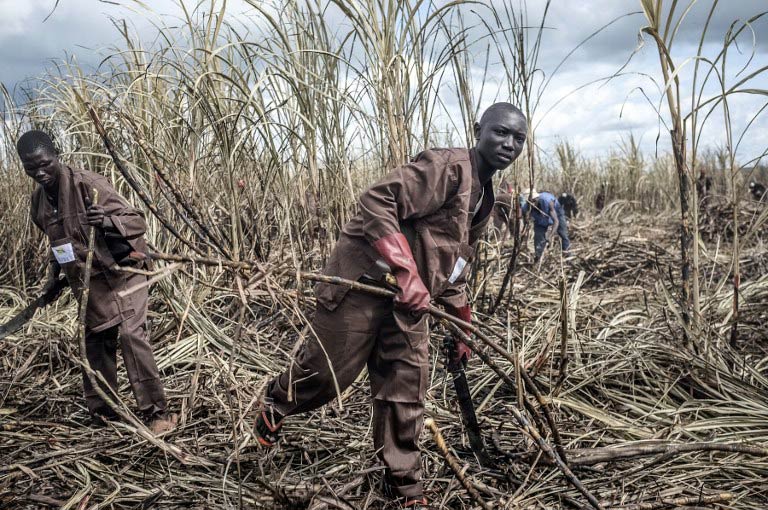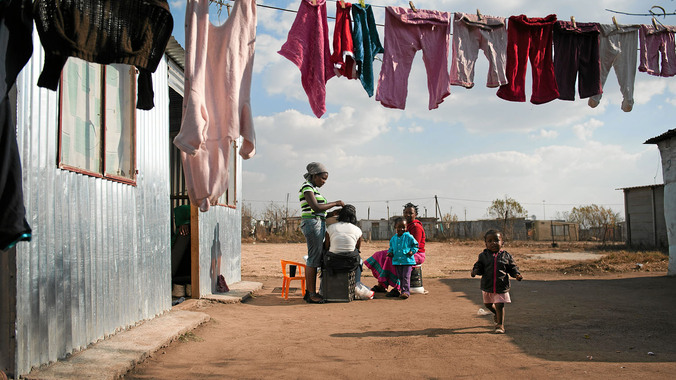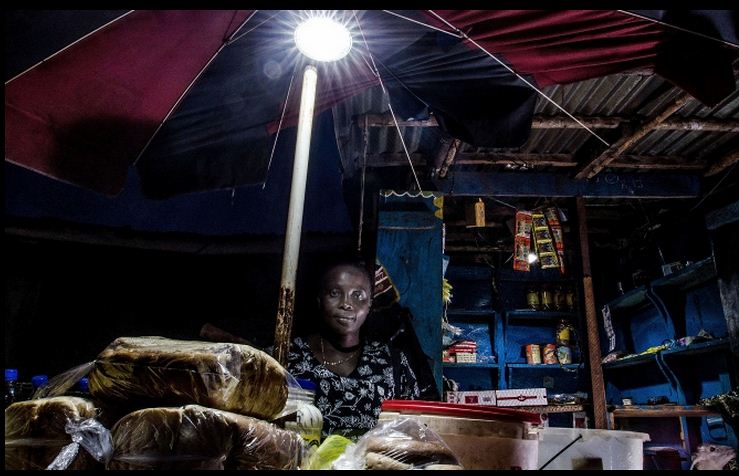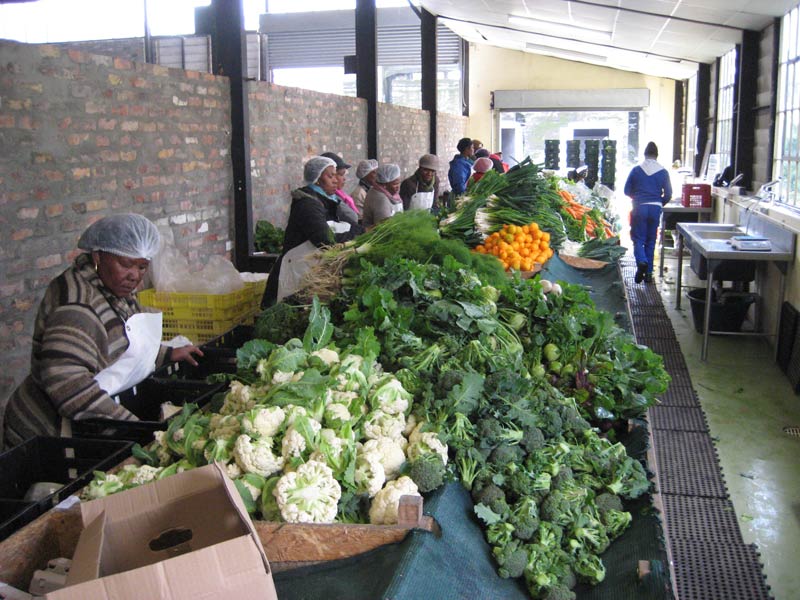A sugar refinery – the war-torn Central African Republic’s biggest factory – is back in business after soldiers recaptured it from former rebels who occupied it for more than a year.
In a rare boost to the impoverished nation’s battered economy, the plant’s 150 employees are back on the job in Ngakobo in the east of the former French colony – with African peacekeepers providing security.
They had fled to the capital Bangui amid sectarian violence sparked by a March 2013 coup by the mainly Muslim Seleka movement.
“We had no more work, no more money. We were bored, so we are happy to be back,” said 30-year-old Solange Ngortene, a secretary at the factory.
Under a blazing sun, workers are busy cutting sugar cane on four hectares of rolling green fields. They would go on to cut 200 tonnes of raw cane that day, enough to produce 20 tonnes of sugar worth some $27 000.

“I was unemployed for more than a year. I was only getting between 10 and 30 percent of my gross salary. That wasn’t easy with a family to provide for,” Ngortene told AFP.
Like many employees of factory operator Sucaf, Ngortene fled with her family to Bangui when the Seleka seized swathes of the landlocked African state in December 2012.
Seleka rebels
The Seleka, a predominantly Muslim rebel militia, looted the refinery, which normally produces 11 000 tonnes of sugar a year, and then commandeered it as their eastern base.
Their coup three months later plunged the country into chaos, eventually displacing a quarter of the 4.6-million population.
After seizing power, some of the rebels went rogue and embarked on a campaign of killing, raping and looting.
The abuses prompted members of the Christian majority to form vigilante groups called “anti-balaka,” or anti-machete in the local language, unleashing a wave of brutal tit-for-tat killings.
Fifteen months on, Seleka has been chased from power following intervention by French and African troops, leaving the economy of the mineral-rich nation – already on its knees following decades of neglect and corruption – in ruins.
While the former rebels still control the area surrounding the refinery, the plant itself was recaptured in an operation involving 30 African peacekeepers in a force known as MISCA and 60 hired private guards. By the end of April, the factory was ready to reopen.
“The factory is going well,” says Sylvestre Serelgue, wearing blue overalls outside the mechanical workshop he helps to operate. “Our brothers from MISCA are providing security. We feel at ease in the factory.”
The problem, he says, is the local Fulani tribesmen, nomadic herders who are armed and directed by Seleka.
“The Fulani really bother us. They attack the staff in their neighbourhoods. There are 15 or 20 of them and they take our money,” Serelgue says.
Gabonese MISCA officers explain that the some 15 Seleka rebels controlling Ngakobo have recruited the Fulani to rob area residents.
“Many employees who sought refuge in Bangui after fleeing the Seleka came back here when it became even more dangerous” in the capital, says Akroma Ehvitchi, the factory’s Ivorian site manager.
“They returned alone, without their families, as there’s no transport and there are still security problems.”
Employees send money back to their families in Bangui aboard the company plane, “but the salary isn’t enough,” according to Prosper, a 42-year-old day labourer. He earns 1 100 CAR francs ($2.20) a day – barely enough to buy a kilo of sugar.
“It’s not much,” acknowledges Sucaf boss Thomas Reynaud. “But in some families you have five or six people who work here.
“The goal is to restart production to save the site,” says the young Frenchman, who was hosting a delegation of diplomats and military officials from Bangui.
Ehvitchi, leaving the factory aboard a company pickup truck, preferred to make light of CAR’s plight of widespread violence and abject poverty.
“In such a situation if you understand what’s happening it means it has not been well explained to you,” Ehvitchi says with a laugh.
Stephane Jourdain for AFP






